Following on from
Argentina,
Uruguayand
Venezuela, we look at the recently crowned Under-20 Sudamericano champions Ecuador in the next installment of the series analysing the top South American talents born after 2000.
Not traditionally one of the continent’s powerhouses, Ecuador have steadily improved over the last two decades, going from whipping boys to qualifying for three of the last five World Cups. Last month they wrote a new chapter in their history by winning the Under-20 Sudamericano for the first time, hinting that there may yet be more to come from El Tricolor.
To casual observers, Ecuador’s victory might come as a shock, but anyone who had watched Jorge Celico’s side over the previous three weeks will have had no doubt that the Mini-Tri were the best team on display. One of the few attack-minded squads in a tournament dominated by defences, Ecuador won six out of nine games, scored more than anyone else and generally were deserved champions.
There were impressive performers all over the field and, as well as those analysed below, a few of those born in 1999 deserve a mention. Jose Cifuentes was arguably the best midfielder on show in Chile and brought a coolness and calm to his box-to-box midfield exploits, while also displaying an excellent range of passing. Athletic left-back Diego Palacios was one of the best left-backs of the tournament and versatile, pacey wide forward Alexander Alvarado had a habit of cropping up in good goalscoring positions.
Here we look in more depth at a few more of the star players, all of whom born this millennium, and could well go on to inspire a new generation of Ecuadorian football.
Jordan Rezabala
One of the Ecuadorian players who arrived at the tournament with more of a reputation, Rezabala did not disappoint with his creative wizardry in the number 10 role. Despite not having made his senior debut for Independiente del Valle, the diminutive attacking midfielder impressed in the Under-20 Libertadores last year and impressed for the national team previously at under-17 level, attracting the interest of Dutch giants PSV and Ajax.
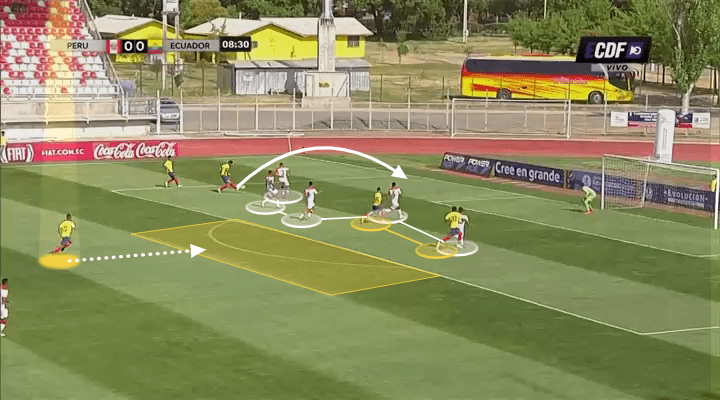
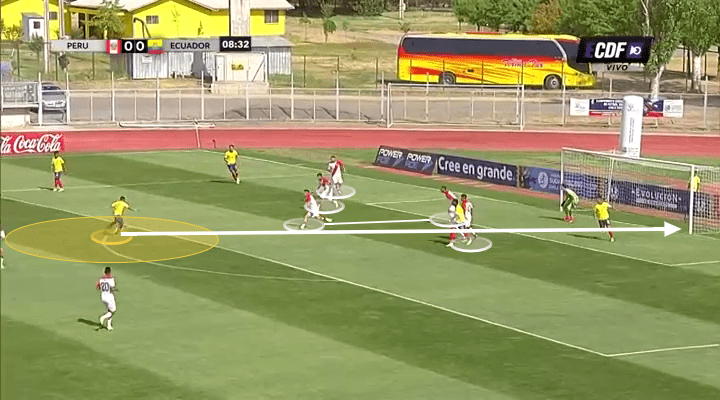
At the Sudamericano, Rezabala set the tone early with a brace in their opening 3-0 victory against Paraguay and another strike against Peru. As well as chipping in with a few goals, Rezabala demonstrated his dribbling, great passing ability and set-piece delivery throughout the tournament.
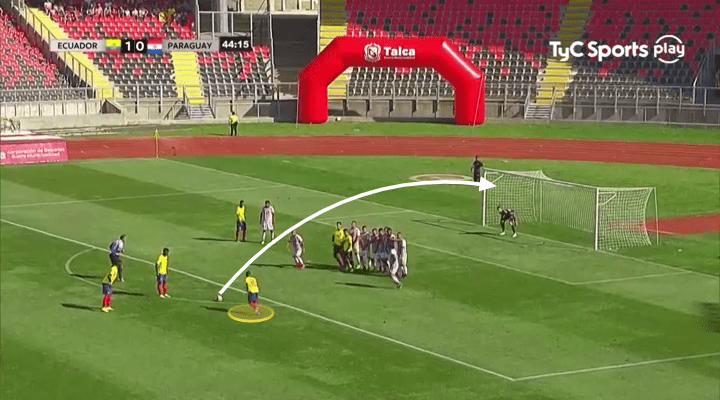
While at his best when finding space between the lines, Rezabala has the versatility to drift into wide positions and, fittingly of someone whose middle name is Lenin, showed plenty of commitment to the collective cause, tracking back and pressing when necessary.
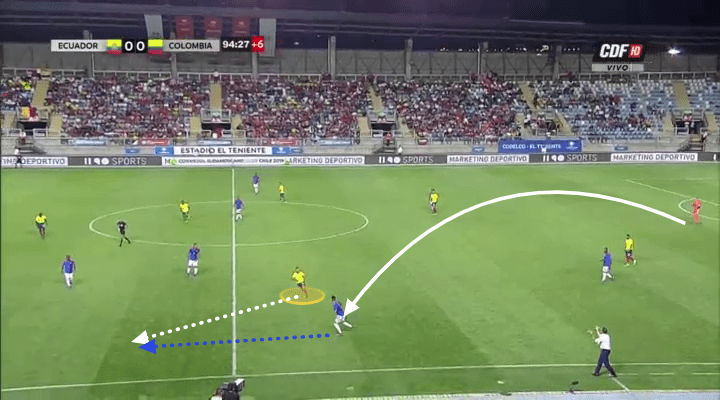
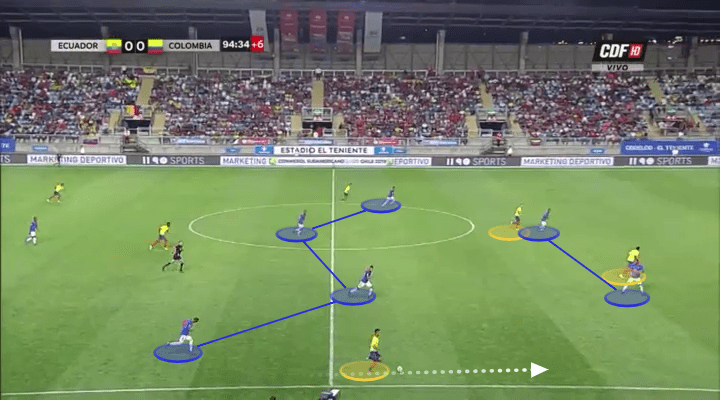
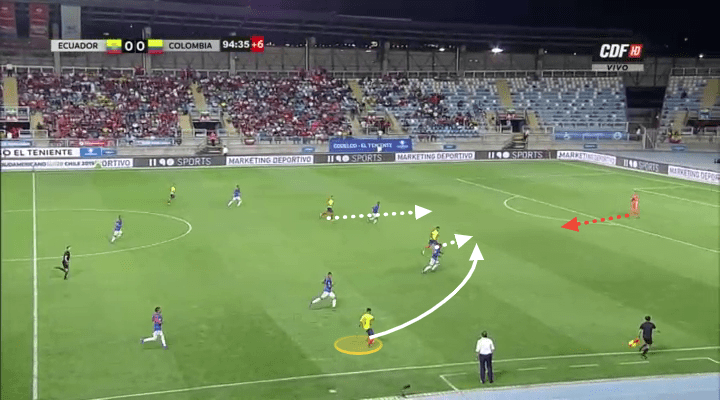
Leonardo Campana
Top scorer of the tournament with six goals in nine games, Campana displayed a maturity beyond his years in the number nine role for Ecuador. The tall, skinny Barcelona de Guayaquil striker acted as a brilliant focal point for his side, holding the ball up well and bringing others into play, as well as proving sharp in front of goal.
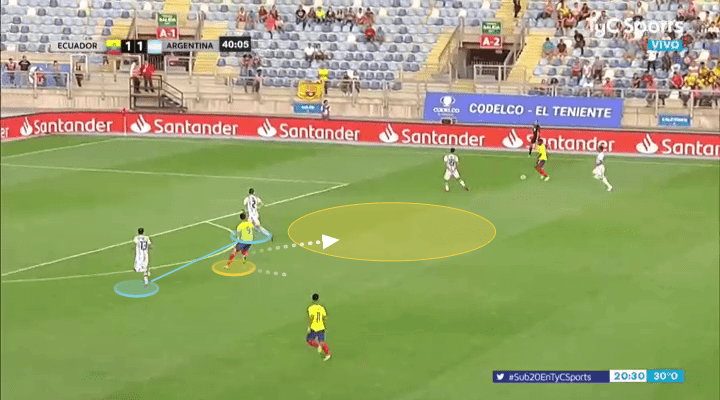
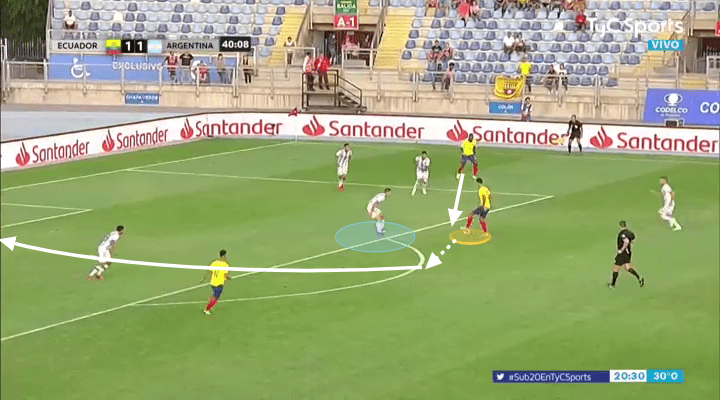
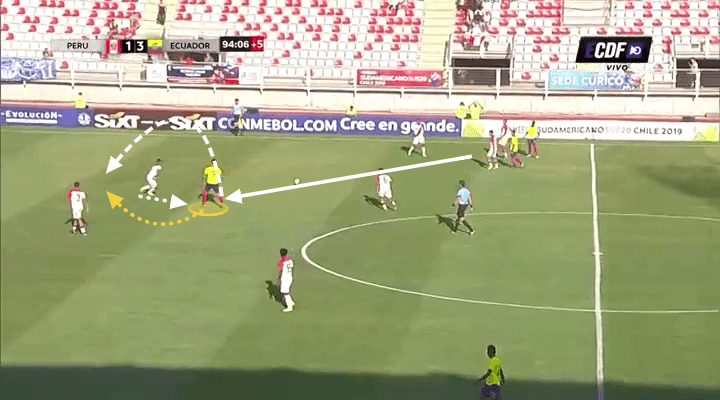
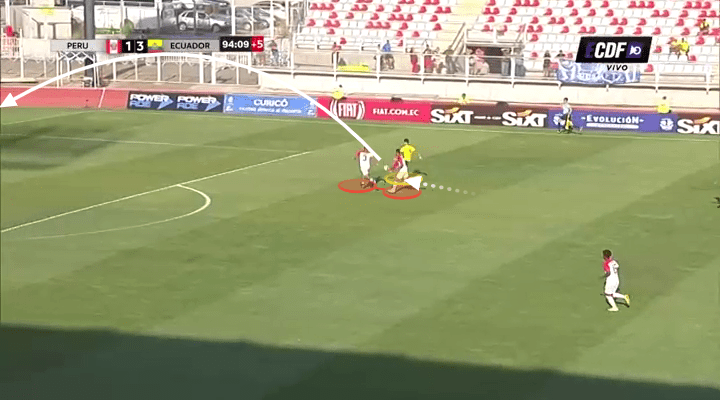
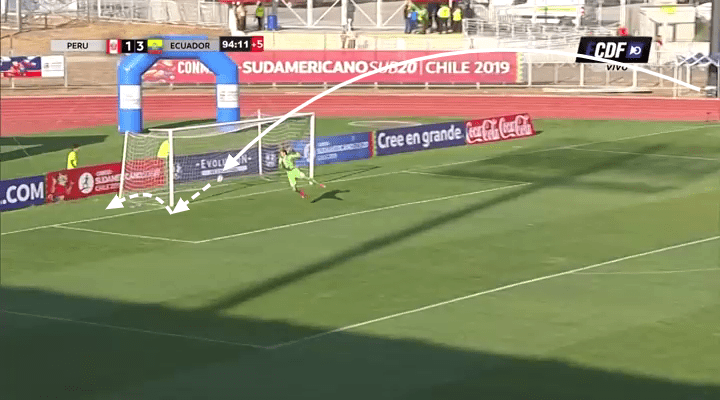
Son of the Ecuadorian Minister of Commerce, who also played tennis professionally in his youth, Campana also showed that he was far more than a target man with his intelligent movement and opportunism. Capable of improvisation, such as his acrobatic effort versus Venezuela, and moments of inspiration, as seen by his speculative effort against Peru, the 18-year-old’s all-round qualities made him the standout striker of the Sudamericano.
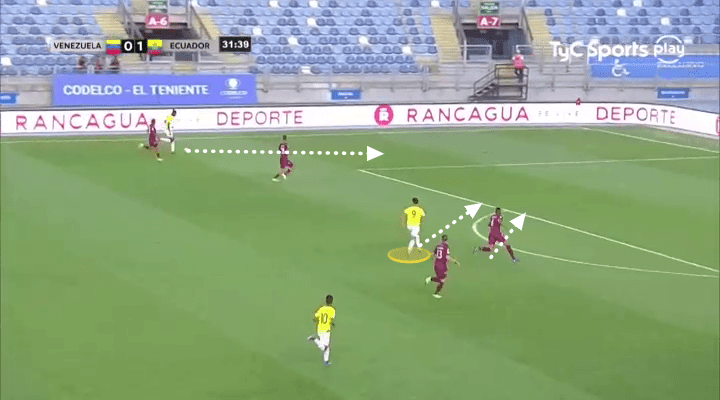
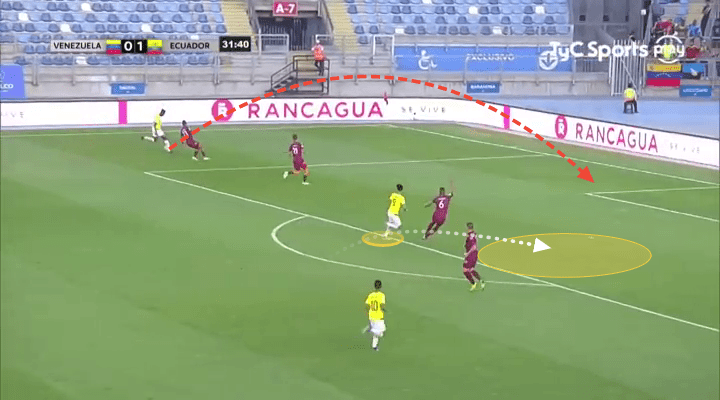
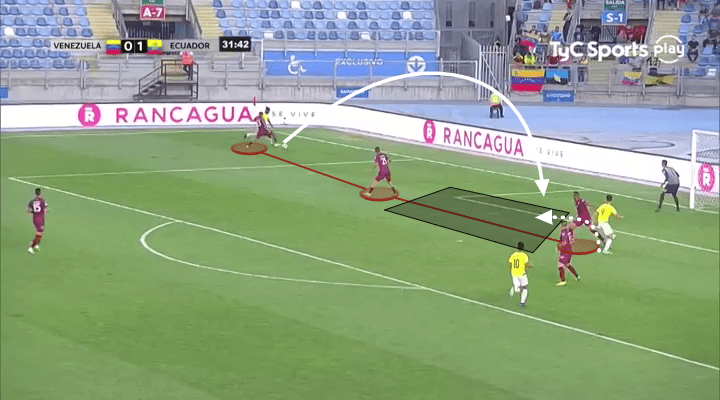
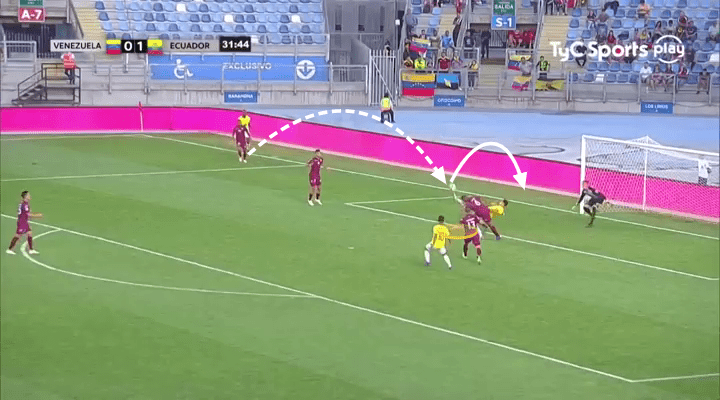
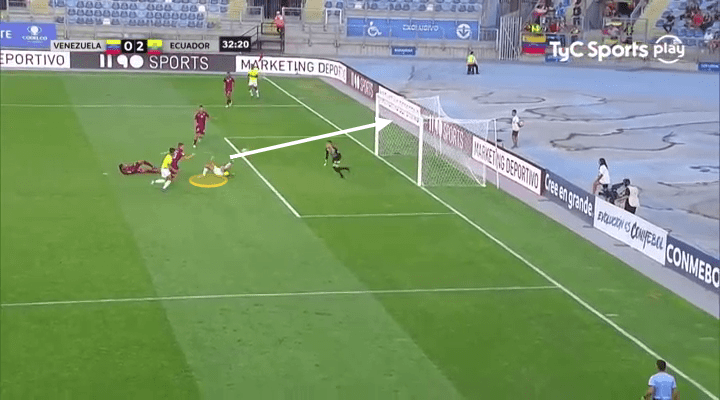
Already attracting the interest of Borussia Dortmund, both Milan clubs and Sporting Lisbon, Campana is hot property and will be the man to stop at the Under-20 World Cup in Poland.
Moises Ramirez
With eight Liga Pro appearances under his belt and a runners-up medal from the Under-20 Libertadores, Ecuadorian number one Moises Ramirez enhanced his burgeoning reputation with a string of solid performances and was arguably the best keeper at the Sudamericano.
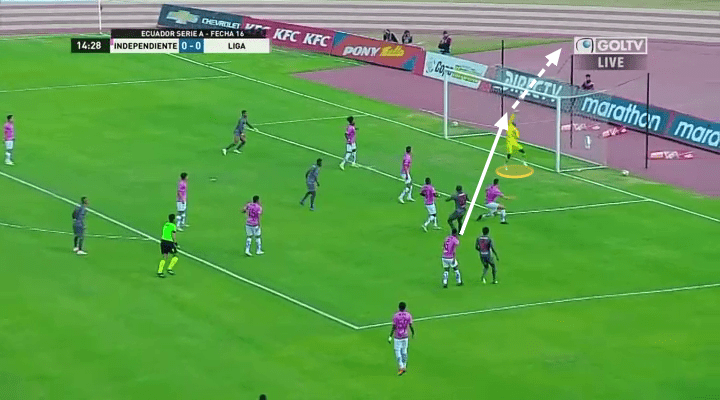
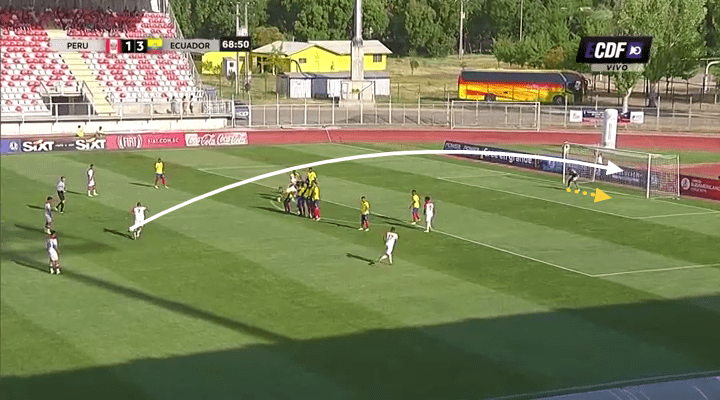
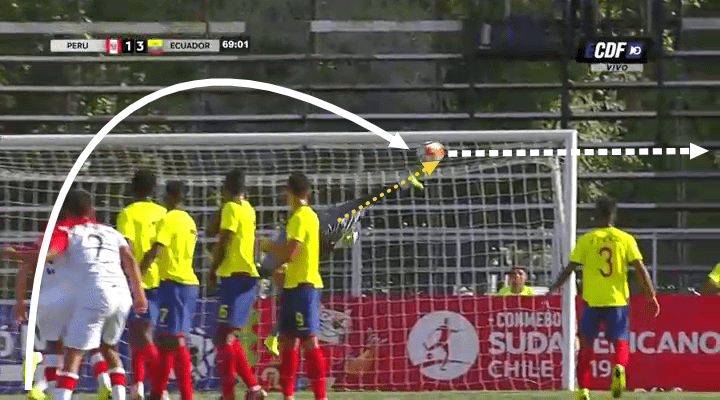
Agile, quick off his line and with impressive distribution, Ramirez conceded just six times in nine games and earned himself a move to Real Sociedad off the back of his stellar showings. Ecuador may not be too well known for the number of goalkeepers they produce and Ramirez could well go on to become a key figure for the national team in years to come.
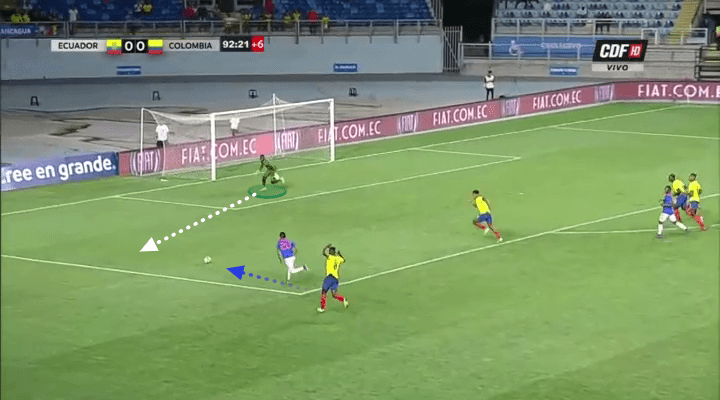
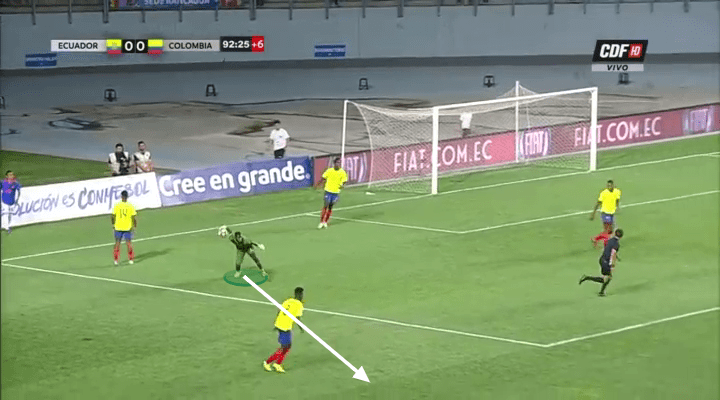
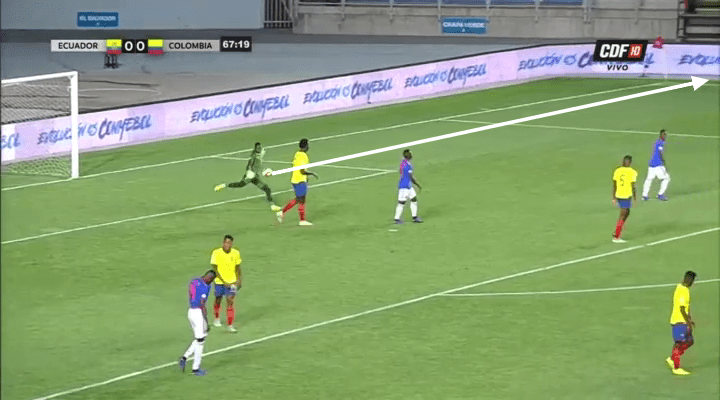
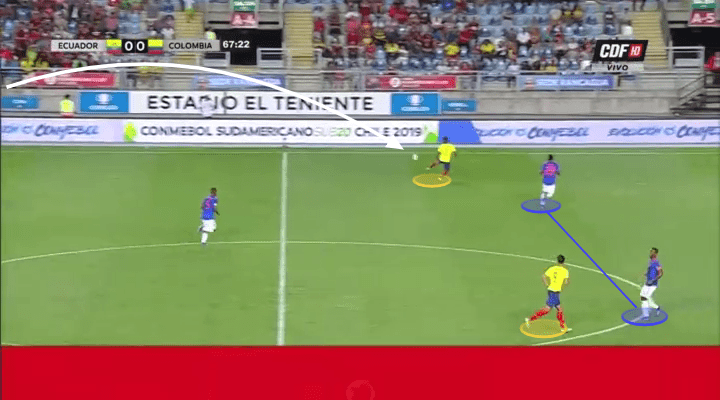
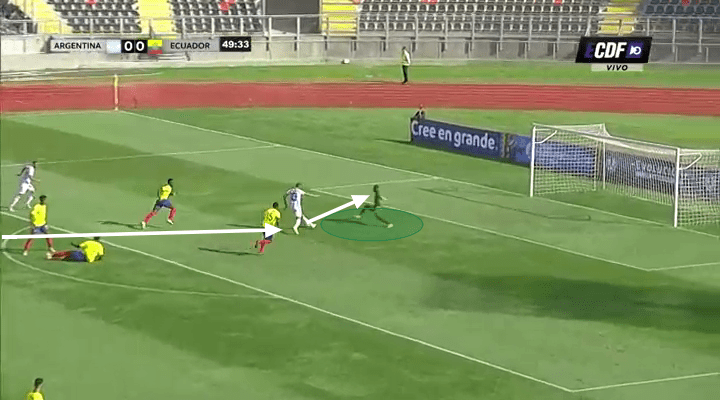
Gonzalo Plata
Full of pace, trickery and directness, Ecuador’s flying winger was one of the most eye-catching players on display in Chile. Plata is another graduate of Independiente del Valle’s excellent academy and one of the players in the squad to have senior experience under his belt, having featured 13 times in the second half of 2018.
Principally stationed on the right flank, Plata was a full-back’s nightmare in one-on-one situations with his ability to burn past on the outside or to cut in and get a shot away on his favoured left foot. An ever-present during the Sudamericano, the 18-year-old gave Ecuador a constant out-ball and threat on the counter-attack in his nine appearances, convincing Sporting Lisbon to snap him up.
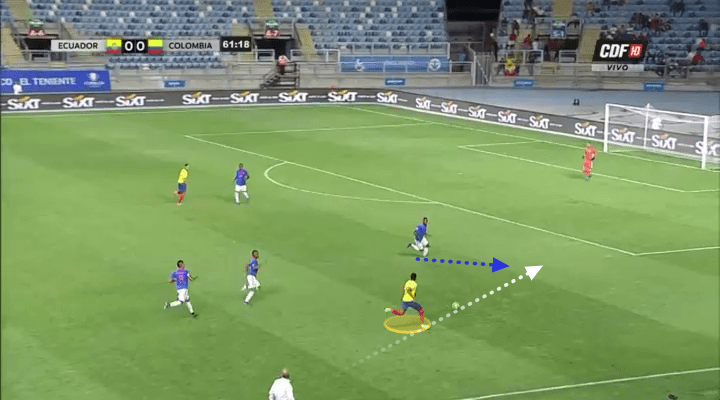
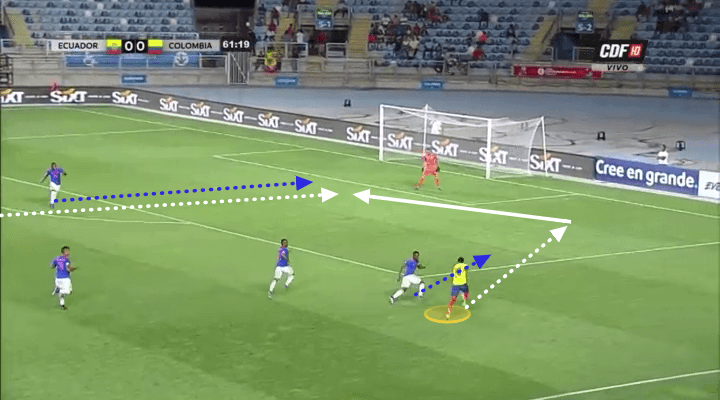
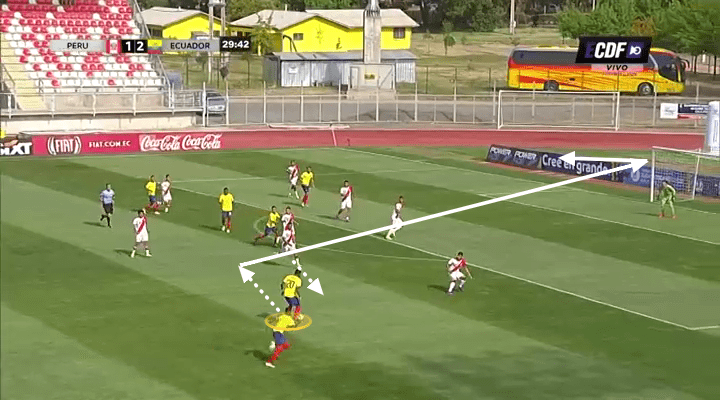
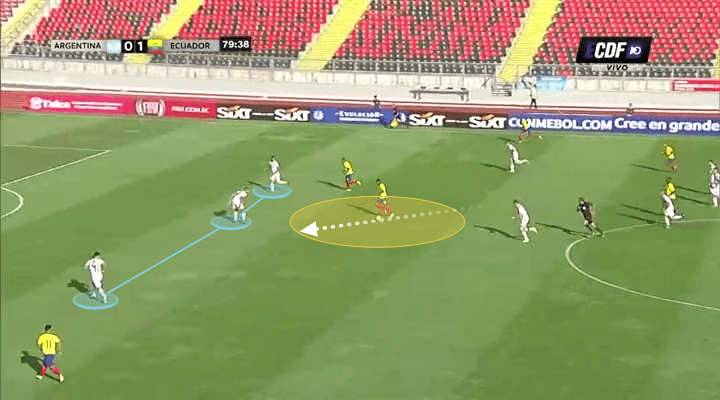
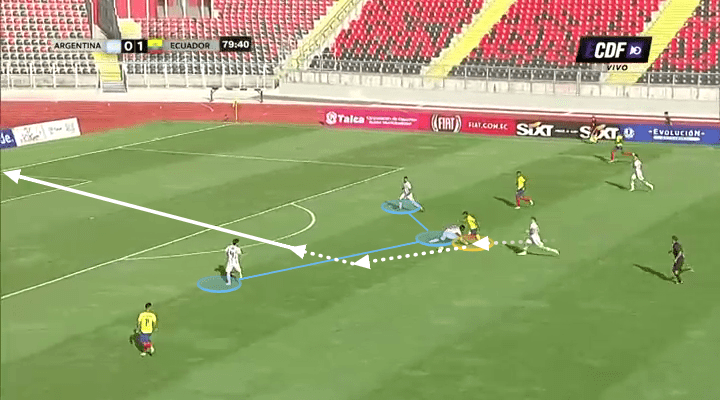
Emerson Espinoza
You wouldn’t have noticed it just by looking at him but Emerson Espinoza was the youngest member of the Ecuador squad. The physically imposing central midfielder played six times and formed an excellent double pivot alongside the calm leadership of Jose Cifuentes. Athletic and full of energy, Espinoza was a big presence as Ecuador looked to dominate the centre of the park and showed flashes of his ability to tackle, disrupt and also bring the ball forward.
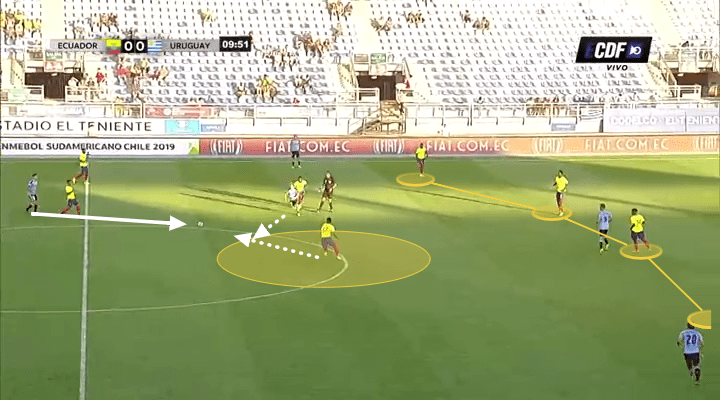
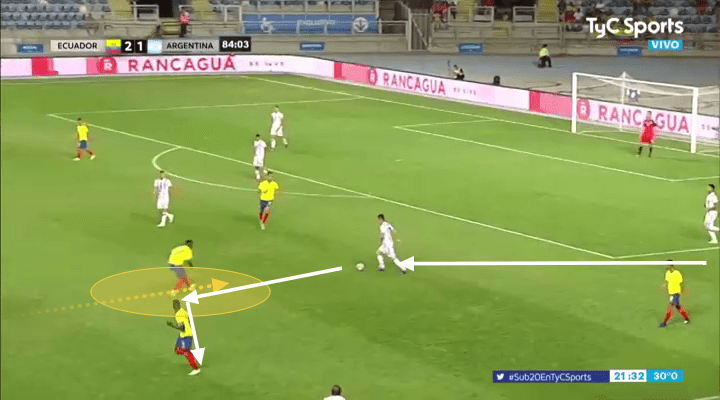
Still extremely raw and one of the more inconsistent performers for Ecuador, Espinoza still has plenty to learn. Given that he has largely featured as a defender for his club at youth level and the fact he doesn’t turn 18 until later this month though, any rough edges in this tournament are understandable and forgivable.
Only time will tell where his long term position will be but his versatility, physical attributes and promising performances mean that he should be one to keep an eye on.
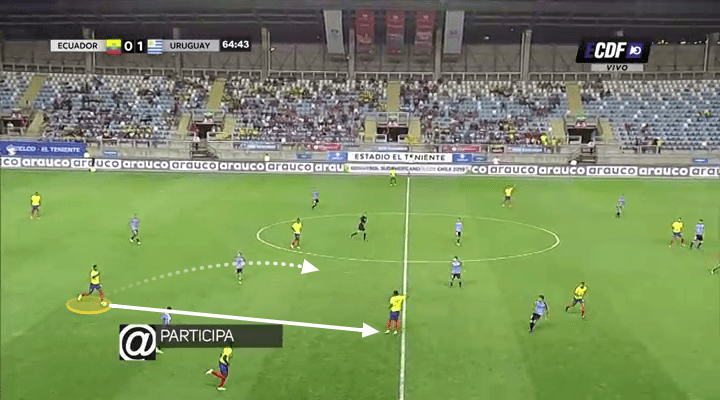
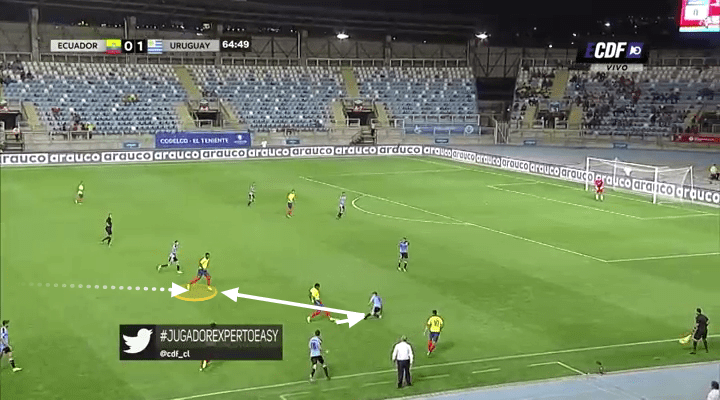
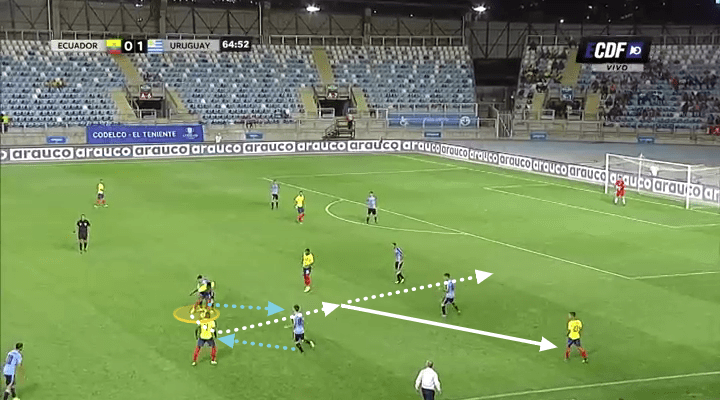
Ecuador, who will be joined by Argentina, Uruguay and Colombia, now will have realistic ambitions of making an impact at the Under-20 World Cup in Poland later this year. Those players featured above will be key if the Mini-Tri are to have a tilt at a first World Cup title.
If you love tactical analysis, then you’ll love the digital magazines from totalfootballanalysis.com – a guaranteed 100+ pages of pure tactical analysis covering topics from the Premier League, Serie A, La Liga, Bundesliga and many, many more. Buy your copy of the February issue for just ₤4.99 here, or even better sign up for a ₤50 annual membership (12 monthly issues plus the annual review) right here.

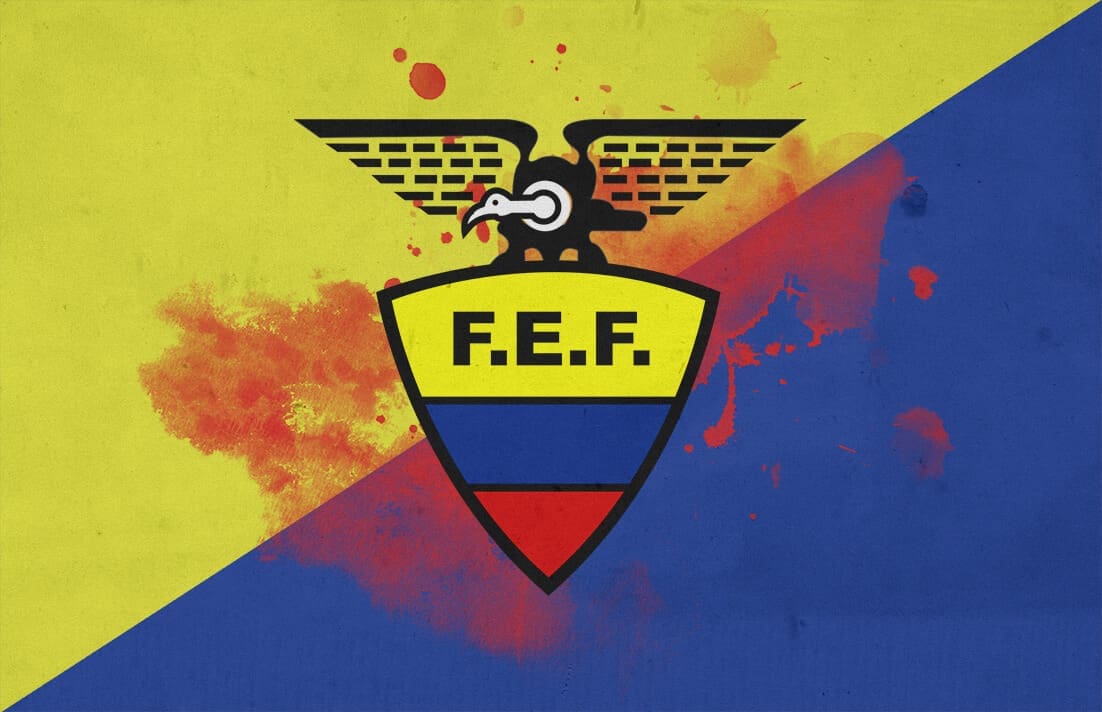



Comments